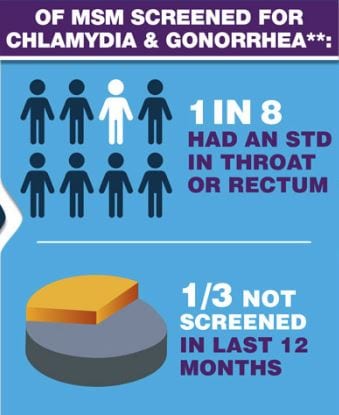Archive for April 2019
Out of the shadows – domestic and family violence: a leading cause of homelessness in Australia
Feminist Scorecard 2019: Tracking Welsh government action to advance women’s rights and gender equality
Having the Conversation I Encourage Others to Have About End-of-Life Care
Hitting the Target: An agenda for aid in times of extreme inequality
Assessment of the Data Sharing and Privacy Practices of Smartphone Apps for Depression and Smoking Cessation
Why Are You Seeking Refuge? Conducting Evaluations of Central American Asylum Seekers
Cumulative Risks of Multiple Criminal Justice Outcomes in New York City
Revisiting Bruner’s Legacy from the Perspective of Historical Materialism
Partnership in Implementation Science for Geriatric Mental Health (PRISM)
JPP Student Journal Club Commentary: When Adults Evaluate a Child’s Pain: Considering Study Methodology, Gender Bias and Parental Experience
Let’s Not Talk About Science: The Normalization of Big Science and the Moral Economy of Modern Astronomy
Featured Article: Gender Bias in Pediatric Pain Assessment
Psychotropic Medication Experiences of Incarcerated Women: A Qualitative Inquiry into Conundrums of Access and Identity
How Naloxone Saves Lives in Opioid Overdose
Inequality and discrimination in access to urgent care in France Ethnographies of three healthcare structures and their audiences
Primary cilium and brain aging: role in neural stem cells, neurodegenerative diseases and glioblastoma
Baloo and You (Germany) [ mentoring program for disadvantaged elementary school children ]
Racial Disparities in Public Meeting Participation? Examining Past Evidence and Nationally Representative Data
HELP@APP: development and evaluation of a self-help app for traumatized Syrian refugees in Germany – a study protocol of a randomized controlled trial
Use of antidepressants and anxiolytics in early pregnancy and the risk of preeclampsia and gestational hypertension: a prospective study
Maternal depression, maltreatment history, and child outcomes: The role of harsh parenting.
Assessing the non-inferiority of prosthesis constructs used in hip replacement using data from the National Joint Registry of England, Wales, Northern Ireland and the Isle of Man: a benchmarking study
Prevalence of autism spectrum disorders and their relation to selected socio-demographic factors among children aged 18–30 months in northern Vietnam, 2017
To what extent is Fetal Alcohol Spectrum Disorder considered in policy-related documents in South Africa? A document review
Prevalence of and risk factors for hepatitis C virus antibody among people who inject drugs in Cambodia: a national biological and behavioral survey
Effect of a multi-ingredient based food supplement on sexual function in women with low sexual desire
Mindfulness Strategies: Supporting Military Parents During Reintegration
Understanding the Buffering Effects of Protective Factors on the Relationship between Adverse Childhood Experiences and Teen Dating Violence Perpetration
Migration, displacement & education: Building bridges, not walls
Working Class History: The Columbia Eagle mutiny

Funding for university studies for ex-prisoners
The Development and Construct Validity of a Team Processes Survey Measure
Extragenital Chlamydia and Gonorrhea Among Community Venue–Attending Men Who Have Sex with Men — Five Cities, United States, 2017

The County-Wide Dissemination of Triple P Parenting Program: An Implementation Study
Where and How Centenarians Die? The Role of Hospice Care
Toward a Radical Practice: A Recuperative Critique of Improvisation in Music Therapy Using Intersectional Feminist Theory
Capital City: Gentrification and the Real Estate State

Our cities are changing. Around the world, more and more money is being invested in buildings and land. Real estate is now a $217 trillion dollar industry, worth thirty-six times the value of all the gold ever mined. Capital City explains the role of planners in the real estate state, as well as the remarkable power of planning to reclaim urban life.
Introduction to the Special Issue in Celebration of Amartya Sen’s 85th Birthday
A Practice Matrix for Involving Young People in Evaluation: Possibilities and Considerations
Geographic distribution and determinants of mental health stigma in central Mozambique
What Therapy Practices Do Providers Value in Youth Behavioral Health? A Measure Development Study
Persuasive technology for enhanced learning behavior in higher education
Too sick to work, too healthy to qualify: a cross-country analysis of the effect of changes to disability benefits
The rise of hunger among low-income households: an analysis of the risks of food insecurity between 2004 and 2016 in a population-based study of UK adults
Male/Female Differences in the Impact of Caring for Elderly Relatives on Labor Market Attachment and Hours of Work: 1997–2015
Predictors of quality of life among community psychiatric patients in a peri-urban district of Gauteng Province, South Africa
Experiences of shame and intellectual disabilities: Two case studies
Older Adults’ Perceptions Of Opioid-Related Policies And What They Mean For Pain Treatment
Funeral poverty: one woman’s battle to pay for her son’s burial